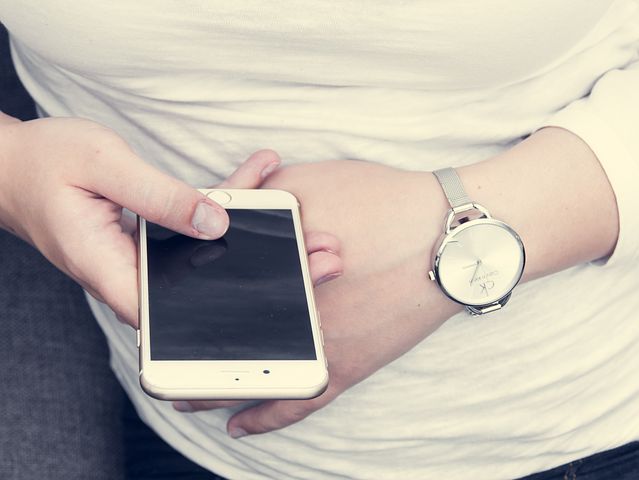
Thirty years ago, science fiction books and movies were about what then seemed utterly impossible: living in a time when machines had taken over the world. Since then, machines have indeed become central to our existence–too central, some would argue. With Covid-19 reinforcing the movement away from in-person connection to teleconferencing and social media platforms, real life, in-person interactions have are less frequent, more selective, and they occur for shorter periods of time.
If you’re in a couple, you have access to regular in-person connection. But many of us are conditioned to be “on-call” to our devices, phones and other gadgets, which leaves us less attuned to both ourselves and the people around us. We nod as our partner greets us, thinking about someone we need to call, or a work-related task we’re in the middle of completing. The motivational/reward systems in our brains have grown conditioned to technology and to the intermittent hits of domapine that pop from reading emails, scrolling through social media platforms, and responding to pings and dings. The sounds our devices make in the background of our lives have a Pavlovian effect, drawing our attention away from what’s happening right in front of us, pulling us back toward screens. If we’re not intentional about our commitment to real life, we can easily miss opportunities to connect with our real-life partner.
Question Your beliefs about Perpetual Availability
Have you ever wondered why it’s so hard to unplug from devices? Do you harbor some version of the unconscious belief: “I always need to be available?” We keep our computers on, with multiple tabs open, so we can return to our email with a click and respond to whoever has reached out to us in the last two minutes. We rationalize our challenges setting boundaries with the outside world by saying, “It’s part of my job, I need to know what’s going on in the world, at least I work from home, what if something urgent or important or time-sensitive comes through,” etc.
Often, the first step to experiencing a higher quality of in-person connection with a partner is to challenge the “perpetual availability” misconception that may be operating just below your conscious awareness, making it hard for you to close the computer or power off your phone and be present to your real life. Even with a demanding job, you can detox from machines and take yourself “off-line” on a regular basis, whether for a few hours, a few days, or a few weeks.

Detoxing from Screens & Devices
One way you can begin to create space for in-person connection with your partner–and enjoying the luxury of real life–is by creating self-imposed boundaries that limit your use of devices.
- Set your phone to be “off-line” regularly at certain times of the day and/or night (most smart phones come with a setting related to screen time usage.)
- Turn on the setting “airplane mode” to temporarily block incoming calls and texts.
- Turn off your phone, computer, or other digital device for an hour or more.
- Set an “out-of-office” or automatic reply on your email or phone so that those who email or text you will be informed of when you’ll be able to respond to their outreach.
Being proactive about creating “real-life only” zones for yourself will allow you to take control of your own screen-free down time.
You’ll likely notice that the quality of your presence changes when some part of you mind isn’t subtly “on-call,” waiting for the next digital notification, or tempted to check your emails or phone simply because that’s how you’ve been conditioned to handle moments when you’re at a stoplight, waiting in line at the grocery store, or sitting in a waiting room. Removing the option of checking your devices or coping with “down time” by distracting yourself with social media can help you practice just being yourself, right where you are, with nothing added, in the precise real-life location you’re in.
Becoming screen-busting allies with your partner
Have a conversation with your partner about screen use. Don’t spring it on them–plan it. Let your partner know you’re concerned about the amount of time you’re connecting, or how distracted you feel when you do. Be sure to approach this conversation with curiosity and a non-judgmental attitude. Reassure your partner that you’re not interested in controlling them or take something away from them–rather, you’re looking to reclaim more of yourself and your life. Talk about how you both view the ways that screens and screen use has become increasingly pervasive and socially sanctioned.
Watch people when you’re out together. What do you see? What’s the percentage of people who are on their phones or other devices when you’re out in the world, together? Share your concerns about your own screen-use, and talk about the kind of quality time you want to enjoy with your partner in your real-life future.





